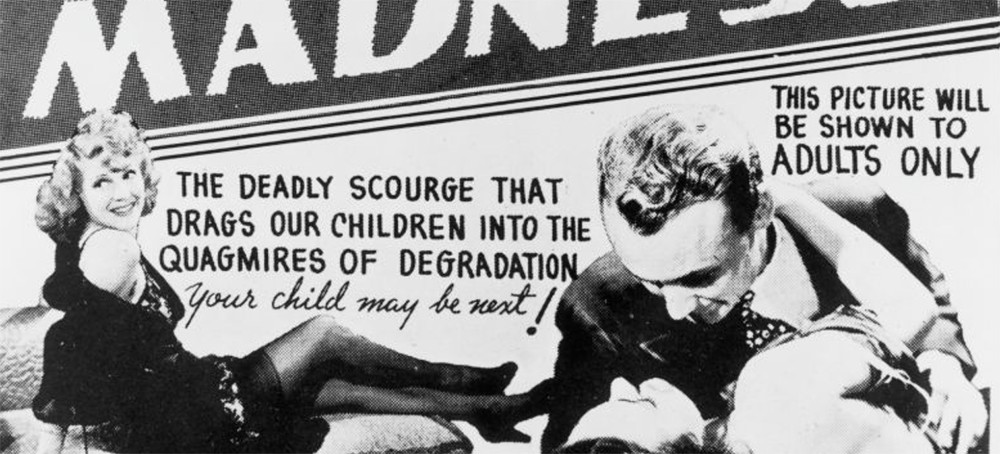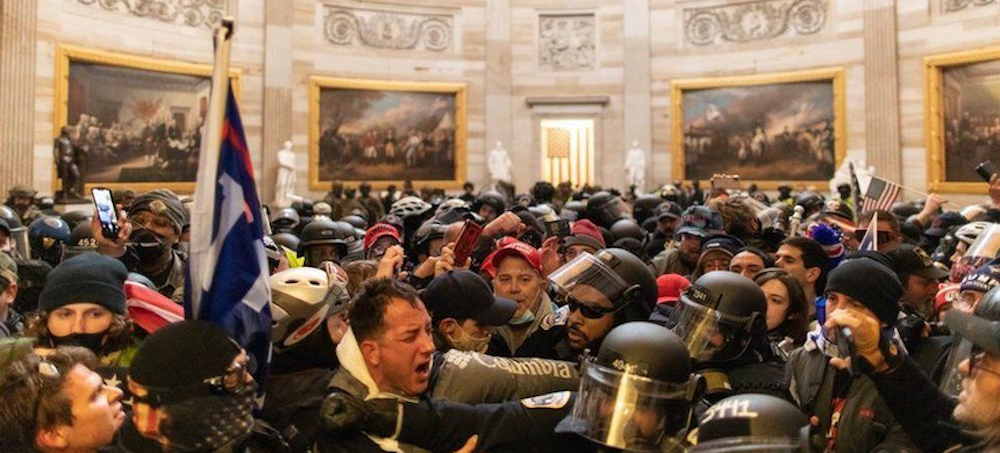
"Reefer Madness" (photo: Hulton Archive/Getty Images)
 09 October 22
09 October 22
Charles Pierce Esquire
Not far from this very keyboard there is a marijuana store. It is the size of a Target, all white and glass, and from the street, it looks like a place where you’d go to buy modern kitchen appliances or high-end electronics.
Every time I walk by it—and yes, I walk by it—I think back to when weed was sold in baggies by the ounce, usually by someone you knew, however casually. I knew a guy long ago who had a client list to die for: business leaders, bankers, entertainers (obviously), and more than a few regular clients up at the state house on Beacon Hill (which is probably why he never got busted).
On Thursday, the president of the United States called a partial truce on this particular front in our misbegotten "war on drugs." He issued an executive order that pardoned every person in federal custody for possession of marijuana.
He did so in a way that showed that he recognizes the absurdity at the heart of the dark burlesque of having people in prison for possessing a substance that is now legal all over the country. The president said:
“No one should be in jail just for using or possessing marijuana. It’s legal in many states, and criminal records for marijuana possession have led to needless barriers to employment, housing, and educational opportunities. And that’s before you address the racial disparities around who suffers the consequences. While white and Black and brown people use marijuana at similar rates, Black and brown people are arrested, prosecuted, and convicted at disproportionate rates. Too many lives have been upended because of our failed approach to marijuana. It’s time that we right these wrongs.”
Obviously, this was a high-stakes political move for the president. We are coming into the home stretch of a crucial midterm election, and the Republicans plainly have decided that a Nixon-era “law ’n order” campaign is their golden escalator to the stars.
They are hammering Democratic candidates with ferocious—and toweringly mendacious—TV ads on the hoary theme of “soft on crime.” One example is the U.S. Senate race in New Hampshire, where vulnerable Democratic incumbent Maggie Hassan has found it necessary to return fire with a commercial in which uniformed police talk about how tough she is on crime and border security. Her slightly cracked opponent, Dan Bolduc, is almost invisible in the air war. It’s Hassan against the national Republican Party.
(Perhaps the most hilariously dishonest attack along these lines is the faux outrage that federal prisoners got pandemic stimulus checks just like their un-incarcerated fellow citizens did. Dzokhar Tsarnaev, the Boston Marathon bomber, stars in many of these commercials, even though his $1,400 instantly went to pay his criminal fines and to a restitution fund for his victims. Also, the bill that set up the program was passed in an enthusiastically bipartisan way.)



No comments:
Post a Comment